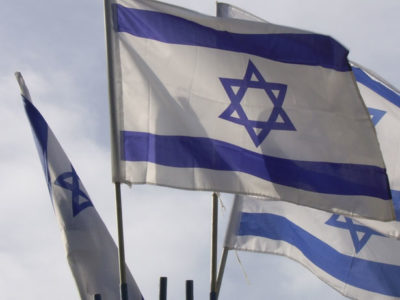Our hearts break for the victims and their families.
If you are a dedicated reader of The Weekly, you know that we are committed to unpacking the latest stories in Israel and the Jewish world with nuance and multiple perspectives.
We are not going to do that this week. We would like to take a break from our newsletter to honor the 21 victims — 19 children and two teachers — who were killed by a gunman last Tuesday at Robb Elementary School in Uvalde, Texas.
Our hearts are broken by this unspeakable tragedy. We are grieving alongside the families in Uvalde and communities around the world. There are no words to describe the pain, heartache and outrage that we all feel.
We frequently say that “facts matter,” yet in this case, we are overwhelmed by the inadequacy of all of the facts — what time the gunman entered the room, when he began shooting and how many rounds he fired — in the face of the one fact that these 21 people are gone.
We teach our students about the power of words, the power of words to create worlds, yet in this case, words and prayers are completely inadequate.
Vayikra Rabbah 9:3 states, “Derech eretz kadma latorah,” Derech eretz precedes Torah. The term “derech eretz” has multiple meanings, but it could be translated as “decency,” “common courtesy,” “ethical behavior,” “civil behavior” and “kindness.”
The idea is that adhering to these norms of derech eretz is a prerequisite for Torah. “Without derech eretz there cannot be Torah,” Pirkei Avot 3:17 states.
If we cannot figure out how to end mass shootings, if we cannot figure out how to ensure that our children are safe when they go to school, then the fabric of our society is broken.
As we prepare to celebrate our receiving of the Torah on Shavuot, this coming Shabbat, let’s hold the victims and families of Uvalde in our hearts and remember that derech eretz is a prerequisite for Torah acceptance in every generation. We must find ways to repair the brokenness, and work to create a healthy, functioning human society.
We also want to acknowledge that, as educators, many of us are processing this tragedy in a unique way.
As our friends at Facing History wrote, this horrific shooting “is yet another painful reminder of the ways in which we need to stand up for our children. And our hardworking teachers, who show up for students everyday, and deserve better. No one should be afraid to go to school.”
So, we would like to take this opportunity to say, thank you. Thank you for being there for your students. Thank you for showing up for them every day. Thank you for your dedication to our young people and community. Our students are so lucky to have such great educators who are present with them and there for them every day.
We are always here to provide you with educational resources, lesson plans and ways of framing topics in Israel and Judaism with your students. And, we are also here for you in general. Please do not hesitate to reach out if we can support you in any way.
If you are considering addressing this tragedy in your classroom, and looking for ways to help your children or students process this and grapple with the fear they may be experiencing, we recommend this resource from Facing History.
We also recommend sharing Amanda Gorman’s poem, “Hymn for the Hurting,” with your students (if it is appropriate for them). Gorman writes:
May we not just grieve, but give:
May we not just ache, but act;
May our signed right to bear arms
Never blind our sight from shared harm;
May we choose our children over chaos.
May another innocent never be lost.
Maybe everything hurts,
Our hearts shadowed & strange.
But only when everything hurts
May everything change.
May the memories of these 19 children and their teachers be a blessing.
With a heavy heart,
Noam and the UED team



